| |
"I loved William Wyler – I could have spent the rest of my career working with Wyler. He was just a heavenly guy. He was pure intuition. I think he was probably the greatest director who ever lived in the sense that he never made a failure either artistically or financially. These guys like Fellini and Wyler, they just sit under the camera: their energy is there for you, and you feel it. They bring amazing things out of you." |
| |
Actor Terence Stamp* |
Have you ever fantasised about having an attractive, vivacious and willing sexual partner without the need for courtship, Tinder, or any financial incentive? The key word in that first sentence is 'fantasised'. Now I bet you're expecting me to answer that. The supplementary materials on this film suggest this is a widespread fantasy. They may not be too wide of the mark. Pre-web, pubescent youngsters used to get their 'birds and bees' information illicitly, furtively, desperately. It was a 'top shelf' education which schools did little to improve upon. I blame religion for the nonsensical annexing of sex as something shameful rather than something not only prosaically normal but bloody wonderful. It is a sad fact that on the official school day of basic sex education with an actual film to illustrate the physical process, I was at home with flu. True story. With wry thoughts, parts of my mind think I never really caught up. Nowadays the situation is so different it's almost absurdly comic, drenched as we are with the availability of pornography that puts all practical chats and paternal or maternal, hand-on-shoulder advice to shame, an exquisite irony in itself. My father told me nothing about sex at all. Mind you, I didn't ask. My mother (bless her) had one thing to say; "There's a time and a place," and that was that. I had to figure everything else out from available information and in the 70s all we had to go on was the sexual ambivalence of David Bowie, the cultural mastery of Gary Glitter (shudder), the strangely sensual cover of the Rumours album and page three of The Sun newspaper. The term 'Readers' Wives' may ring a few sordid bells for Brits of my generation but I am astounded (in 2018) at how ridiculously prudish and impractical we were about sex in the 70s. But the subtle key to The Collector is that the antagonist imagines himself above 'all that sort of thing' and the events in the film challenge that assertion all too frequently. As Harlan Ellison (RIP) once said, "Love ain't nothing but sex misspelled."
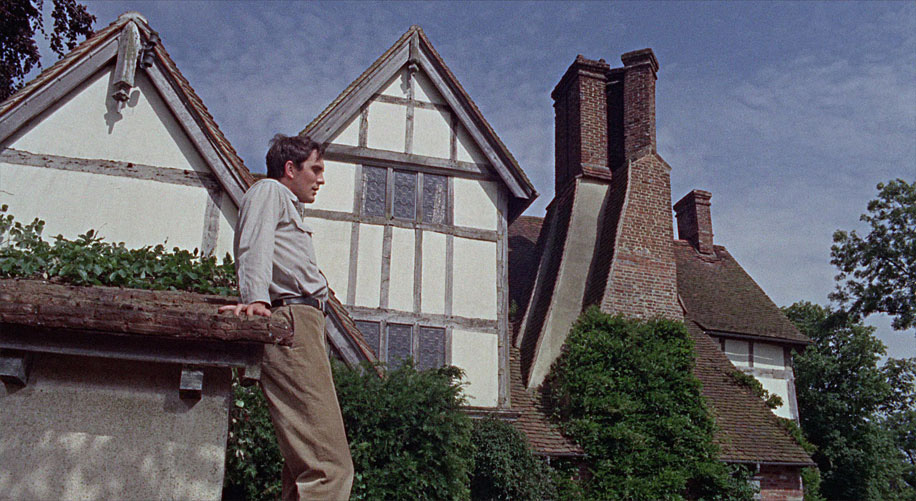
Frederick Clegg is a young man first seen in the English countryside, collecting butterflies. While on his way, he sees a large isolated house for sale and finds an abandoned cellar beneath an extension, a discovery that seems to please him. A football pools windfall of £71,000 (today that would be about £1.3 million) enables Frederick to buy the dream house and plan and execute an elaborate and horrific fantasy. He stalks what was once a teenage sweetheart on London's streets before kidnapping her and imprisoning her in the now bespoke barricaded cellar. He's in love with her you see and this is the only way he can satisfy his desires. Frederick, as you may have worked out by now, is the worst kind of predator – one who believes himself to be essentially decent while subjecting the object of his love to almost constant terror. One minute she's wandering the streets unmolested and the next she's a prisoner in if not a gilded cage then a semi-comfortable one. It's the nicer aspects of both the surroundings and the kidnapper that boil the blood, that sickening pretension that true psychopaths display with no irony. And make no mistake, Frederick is a sadist deluding himself and the movie's tagline of 'Almost a love story' makes me bristle with indignation. Perhaps his actions are prompted by a perverted sense of adoration and desire but in human relationships, having something not freely given is not having it at all and we spend a lot of the film being invited to sympathise with Frederick's torturous frustration. Not me. From my point of view, Frederick is stone cold, a great movie villain no doubt, but his actions and continued behaviour towards his captive are indefensible.
It's quite unsettling to watch a film in which two individuals are pitted against each other with the upper body strength of the man possessing all the physical power and therefore controlling the context and environment but not the behaviour of his loved one/adversary. This battle of the sexes serves to remind us how men became dominant throughout history, and how today, things may be slowly, psychologically changing. The #Metoo movement, despite its detractors, is steering potential sexual predators to seriously revisit their behaviour and intentions. That can only be a good thing. But crazy is crazy. Not too many social media movements can quell, change or negate psychotic behaviour. And make no mistake, Frederick is quite insane and Terence Stamp is having an absolute ball. "I want you to be my guest," he says only really meaning half of that line...
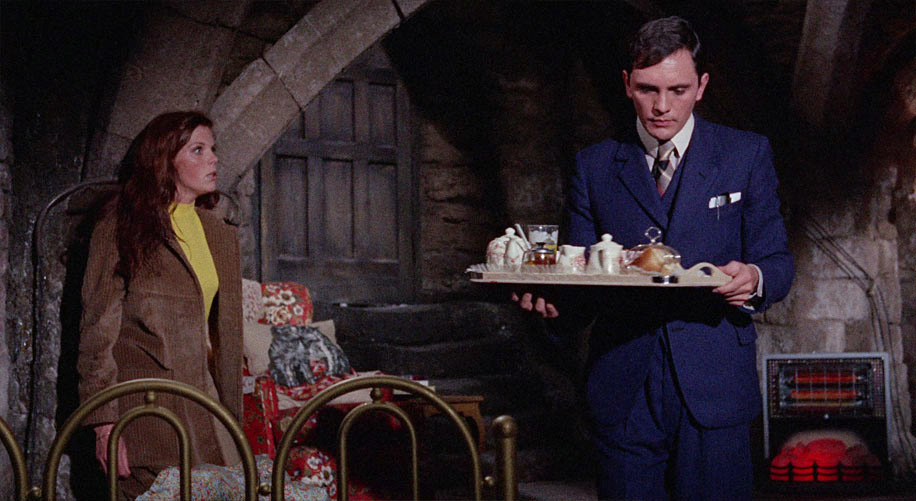
The fact that the object of the kidnapper's desire is conventionally beautiful makes perfect sense. But casting (at the time) one of the most desired men of his generation as the ugly boy of the novel was a bold move. Stamp has to come across as even more crazy to render his own beauty ineffectual. If you feel you have to seduce someone to leverage some power over them, it helps a bit that you find them physically attractive, doesn't it? Or am I being mindlessly shallow? Stamp employs a raft of mannerisms in his portrayal as Frederick. Ever tried walking and synchronising the natural movement of your arms so that they both swing back and forth in unison? It's a disarming trick, no pun intended, but it alerts you to the fact that something is 'off' about this character. Stamp seems to have literally belittled himself, shoulders crunched inwards and he rarely makes eye contact with his victim. His hands curl, knuckles up as if he's playing two small portable keyboards, more subtle manifestations of 'not quite right'. And those eyes, strikingly grey/blue, in a coincidence that raised my eyebrows, are the self-same colour of his co-star's, Samantha Eggar. She plays his terrified victim Miranda. But this isn't some helpless, fragile redhead. Eggar radiates health, privilege and attractiveness. She's an art student and after realising what a terrible ordeal awaits her, she becomes more assertive and confident once a deal is made with her abuser. Always on the look out for a slip or a door left unlocked, she makes several unsuccessful escape attempts and despite her own justifiable feelings of rage and fear, a relationship of sorts forms between the two. How could it not? Eggar is superb in the role, so much so that I felt every drop of despair, every hair's breadth of hope. When she starts to realise that you cannot do a deal with a psychopath, extreme measures need to be taken.
The key scene between the two is one that I can empathise with fully. Sensing an opportunity to bring Frederick into her own world (class is another issue that divides the two), she prompts him to read Catcher in the Rye. For those four of you in the Universe who are unfamiliar with the novel, set in the 50s, it's a few days in the life of a young American teenager, Holden Caulfield, told in the first person and deals with themes of alienation and disconnection. Miranda's is a risky strategy. Would Frederick feel Holden's pain and frustration, empathise with him as he navigates an indifferent and abrasive world? Would he, in short, recognise the book as a mirror and adjust his behaviour? Uh, psychopath, remember? He takes issue with some of the book's minor details and snatches up an art book with a typically surreal Picasso on the cover. Frederick is incapable of folding many views of what constitutes art into his narrow focus. How, he wonders and pleads, could a misshapen human form be a good or even great painting? Of course Miranda has the education to appreciate it, something that riles Frederick even more. He tears the cover off in frustration. This was the first time in the film I could honestly say "I know exactly how he feels," and for the full story on that, see the eighth paragraph onwards of my article, New Waves, Old Friends. It's very frustrating not to 'get' what others 'get'.
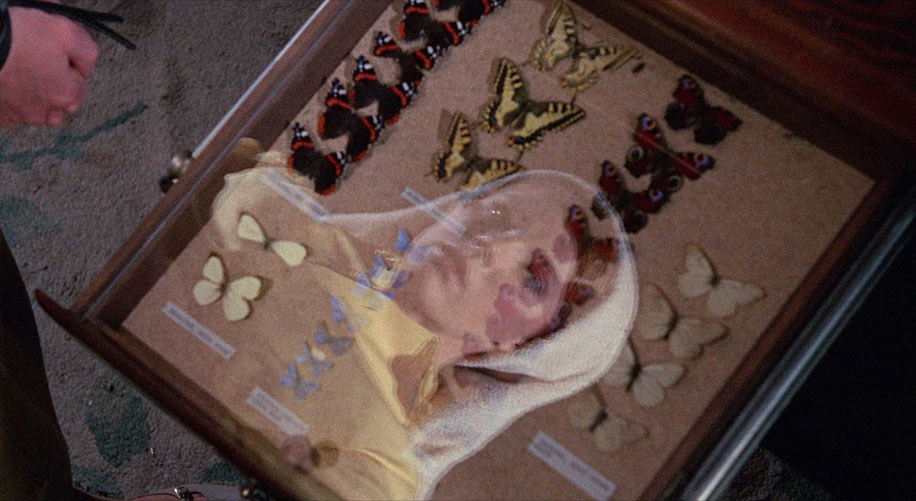
The Collector is notable for a few technical aspects. When Wyler and editors David Hawkins and Robert Swink decided that a shot needed a bit more clarification, they chose an optical zoom (an after-the-event zoom in to the shot that increases the grain the closer you move in to the physical celluloid to create the mood the filmmakers were after). As soon as the quality starts to decrease, you know you're watching an optical zoom. There's also a classic example of how filmmakers let us know that we were going back in time with that swirly nonsense. It's enough in The Collector that the flashback is in black and white. They really didn't need the swirly mix in and out but I'm writing from the future and that overused trope was still hand-holding the audience and was deemed necessary. Once Stamp has pressed his hand over Eggar's mouth to stop her calling for help, there's an offhand moment (literally) where Stamp holds his own hand up to his mouth. This is never stated with a close up of its own, it's just there as an erotic charge for those of us who want to see it. Bravo, Wyler and editors. Confirming herself as just another creature caught in Stamp's net, Eggar says "Think of all the living beauty you've ended..." I have to say that that line made me rethink a museum's collection, killed and impaled for our education. There is an act of violence in the film that in mere, small fractions of a second prompt an outpouring of blood, something not wholly realistic. But we can forgive these lapses. 1 hour, 12 minutes and 4 seconds in, Stamp has left the kitchen carrying a breakfast tray and as we track into the calendar, someone passes on the right throwing a shadow. Who could that be? A grip? Most likely. There is a very unusual edit at 1 hour, 48 mins and 47 seconds... It may fit quite happily in Bonnie and Clyde but here it smacks of negative damage and the crudest way to get around that problem. Stamp carries Eggar back to her bed and we jump cut to the same shot a second or two later. There is no other reason for this that I can think of other than shot damage to be avoided. As ever, I'm happy to be disabused.
One last thing to mention: the score. On my first viewing, I didn't know who the composer was (all credits, bar Wyler's name with the front title, are at the end) but I couldn't figure out what the emotional intention of the score was supposed to be. At times under Stamp's eerie portrayal there's a heroic, romantic sense and I know music is supposed to impart different aspects of character but Stamp's Clegg was so abhorrent to me that any support of his emotional vulnerability via the music just pissed me off. It's those lines from Manhunter that sum it up perfectly. FBI bigwig Jack Crawford says "What are you, sympathising with this guy?" Investigator Will Graham replies "Absolutely... My heart bleeds for him, as a child. Someone took a kid and manufactured a monster. At the same time, as an adult, he's irredeemable. He butchers whole families to pursue trivial fantasies... As an adult, someone should blow the sick fuck out of his socks..." Jarre's orchestration (sorry) jarred. There's even a harpsichord in there. As he's stalking her, capturing her and delivering her to his pillowed dungeon, Jarre's cue is almost celebratory. It could be that Wyler asked the composer to get inside Clegg's head. As an artistic decision it belittles the suffering of Eggar and that's not right for me. The score's a product of its time perhaps as music was undergoing something of an upheaval in the mid to late sixties. But it was just all over the place, a comment I cannot make with any other score by the great Maurice Jarre. Yes, a giant of his ilk. I just don't know what Wyler and Jarre were thinking.
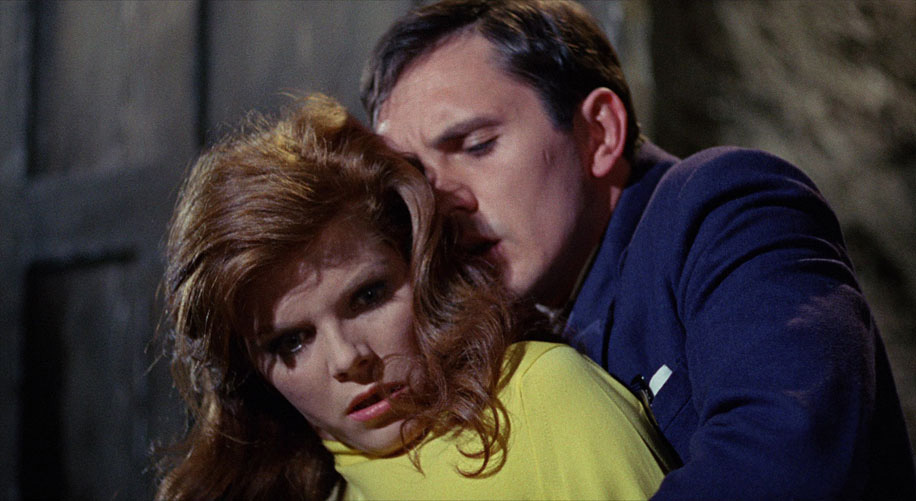
Wyler was offered another film to produce and direct but chose The Collector to move away from the big budget multi-cast epics like his own Ben Hur. He let Robert Wise direct The Sound of Music... Given the choice I think I might have gone for The Collector too, a very well made film about a psychopath and his victim that doesn't fail to hold you in its macabre grip.
This is a great restoration hands down and it's a joy to see London, in the swinging sixties in all of its glory. Shot in the 1.85:1 aspect ratio with thin black letterboxing, this 35mm originated story is rendered crisply with great contrast levels and at times quite vivid colour reproduction. Grain is only evident in those optical zooms I mentioned. There are one or two focus issues in the film but these are not too distracting.
The mono soundtrack holds up very well but I would have mixed the music down a little. When Jarre has the bit between his teeth, it can be a little overpowering and at times, downright odd.
There are new and improved English subtitles for the deaf and hard-of-hearing.
Guardian Interview with William Wyler (Adrian Turner interviewer) 1981 (1hr 23' 04")
A full fifty seconds of rapturous applause to begin with and over that number to see the man off stage. People love this guy. That's some earned respect, right there. Wyler himself was quite overwhelmed. Because Wyler made all kinds of films throughout his diverse career, he couldn't be pigeonholed and therefore recognised for excellence in one genre or specific field of filmmaking. Despite being charitable about his choice of The Collector over The Sound of Music, famous US critic Andrew Sarris is unimpressed enough with Wyler to place him in the section 'Less That Meets The Eye' in his classic book The American Cinema and concludes snidely, "It is as if The Collector were an unseen interlude in the director's inevitably dismal destiny." Don't sugar coat it Andrew, tell it like it is! Well, we can all differ in our opinions...
This is a seriously wonderful interview. Wyler is not in great physical shape (he has hearing and memory loss and a hearty cough) and died a little later that same year but the 78 year-old's wit is undiminished. His absurdly successful career had him rub shoulders with industry legends and I don't want to rob you of any goodies by quoting them here. There is one reaction from a member of the audience who was a little put out by Wyler's damning report of his own 1952's Carrie (the Olivier love story not the Spacek telekinesis horror). The questioner asked why Wyler was so down on what he considered to be one of the best of his films... Wyler shoots back with "Didn't make a dime!" This is an essential extra for Wyler fans.
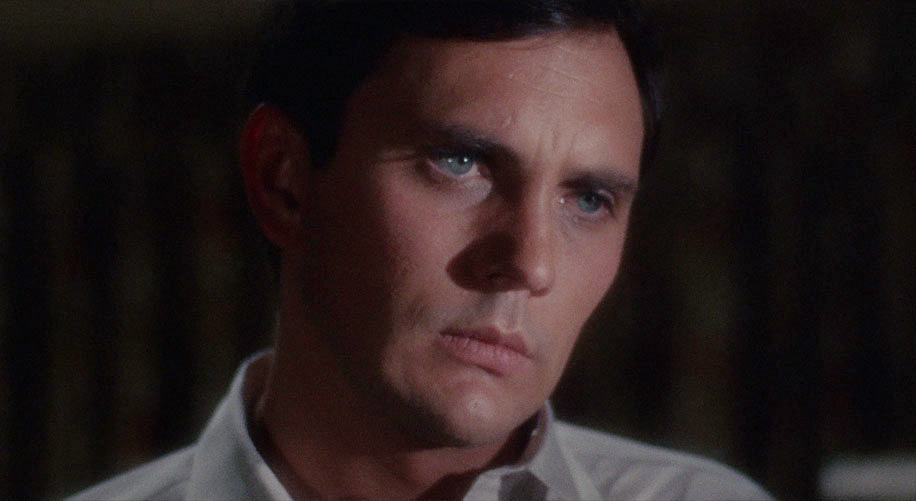
Guardian Interview with Terence Stamp (Tony Sloman interviewer) 1989 (1hr 32' 56")
Another goldmine. Stamp is utterly charming and has wonderful stories pouring out of him. I was lucky enough to work on a film in which he acted and now regret not viewing his back catalogue and grilling him about it. When he started out and got the big break as Billy Budd in (drum roll) Billy Budd, he relied on his mate and flatmate Maurice Micklewhite (he changed his name to Michael Caine) to teach him film craft. "You gotta hit the marks, Tel. You can be better than Brando but if you're out of focus, they won't print it!" Classic. Co-star in Budd was Robert Ryan who stayed in character throughout the shoot to help his performance. Stamp is as charitable as his own character in saying it was done to improve both men's performances. He says "He'd gone twelve weeks making me think he was a right git!" Stamp felt he had a terrific and close relationship with Federico Fellini on Spirits of the Dead and when it came time to say goodbye, Stamp was justly nervous. Apparently the great man simply said "Ciao!" and that was it. This extra is full of gems. Tony Sloman lists the number of now classic films that Stamp was offered and turned down... He says, "You're making me feel very depressed..." Great stuff.
Selected Scenes commentary with author and film historian Neil Sinyard
Neil Sinyard's been a real find as far as intelligent and informed comment on new Blu-ray releases. He has a pleasing delivery that always sounds to me as if he's delivering bad news very gently. His selected scene commentary is informed, sprinkled with little asides like author John Fowles thought Wyler was a cross between Rumplestiltskin and Socrates. That would take some unpacking. Sinyard notes that the score is unusual and too whimsical in places (glad this wasn't just me). There was one detail that would have taken the film into unchartered waters and it was lead actor Terence Stamp's idea. His character Clegg was so adverse to intimacy (the kind you could get from a call girl) that the only way he would have had sex with Miranda was if she was dead. Not sure that would have got past the censors at that time...
The Look of Stardom (2' 13")
Jesus! A black and white 4:3 aspect ratio teaser that concentrates on Samantha Eggar and it feels cloying and a little bit unwholesome, like someone had really set her up to be spied upon.... It's just a promotional tool but still, awkward.
The Location Collector (7' 51")
An oddly fascinating short revealing the real locations used in the film as well as what were movie sets. This shouldn't be as entertaining as it is.
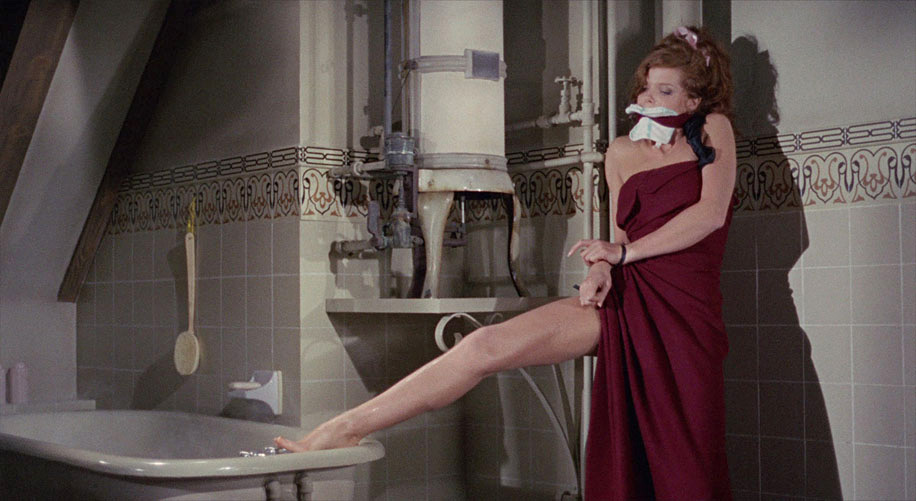
Angel to Devil - Interview with Terence Stamp (2018): a new interview with the iconic actor(12' 45")
At 80 years old, Stamp has lost none of his smarts. Yes, the hair has receded but the speech is straight and informed. His memories tie in with the supplemental material on offer elsewhere. And he is an engaging interviewee with no pretence. His jackpot DNA that blessed him with film star looks is just accepted and not underlined. Classy and humble, Stamp just delivers.
Nothing But Death - Interview with Samantha Eggar (2018): a new interview with the award-winning actor (15' 20")
At 79, Eggar here is as compelling as her younger self in her recollection of working on the film. Her story of how Cannes looked down on her because she was pregnant receiving her best actress award... Bizarre. She has charming memories of a circus life – filmmaking as here today and gone tomorrow. Lovely. Her interview offers a different perspective of the making of The Collector and it is by far the most surprising extra in terms of her experiences on the film.
Richard Combs on The Collector (2018): a new appreciation of the film by the renowned critic, lecturer and broadcaster (8' 34")
Longstanding and respected film critic Richard Combs' analysis takes in the original author's intentions as well as the resetting of Wyler's critical standing. He covers ground already covered by the booklet but that's to be expected.
Original theatrical trailer, 4:3 aspect ratio (2' 50")
Hmmm. We start off with telling the audience that to all intents and purposes, Stamp's character is Hannibal Lecter. OK... as he imprisons a butterfly. There's a lot of brutality previewed or there appears to be a lot cut together almost revelling in the violence. "From thought to wish, from desire to obsession, from dream to nightmare..." OK. Stamp's character is described as a 'hero villain'. Uh... No. And Marurice Jarre's misjudged score (I realise I may be in the minority with this opinion) makes the whole enterprise out to be jolly fun and japes. Hmm.
Teaser Trailers (1' 22")
The first is a black and white collage of stills focussing on director Wyler. The teaser is still pushing the idea of hero villain... The second 22" effort just details the fact that both stars won both best actor/actress at the Cannes film festival with black and white stills from the movie.
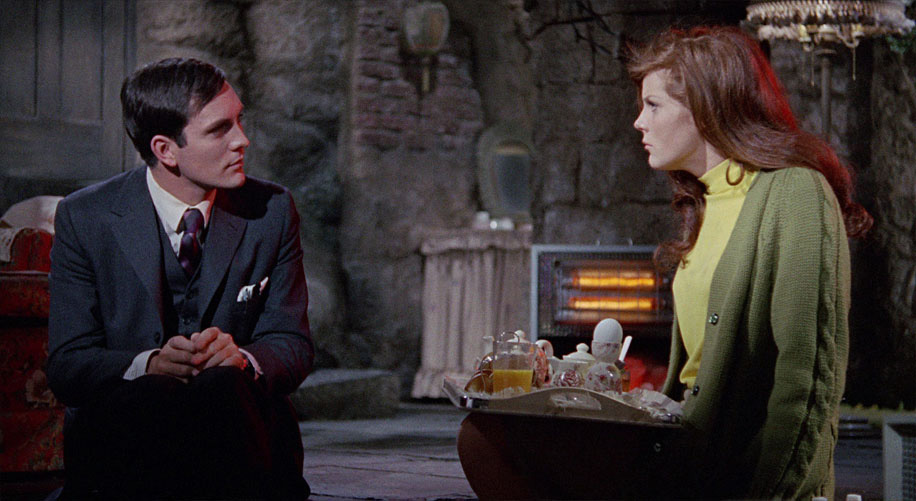
Image gallery: promotional photography and publicity material
We start the stills with the image that one critic found so alluring (Eggar turning on the bath taps with her toes while tied up and gagged) in black and white and it's followed by 10 colour stills, some two at a time and then a close up of Stamp from what looks like another movie and 1 black and white front-of-house still. Following that there are 8 colour front-of-house stills and then six poster designs... 'Almost a love story', my arse.
Limited edition exclusive booklet with a new essay by Carmen Gray, an overview of contemporary critical responses, historic articles, and film credits
The Collector by Carmen Gray essay is a good overview of the context of the film and the psychological roots underpinning it. John Fowles and The Collector is a selection of the original author's thoughts on the book. His ideas of it being a parable of inequality is not immediately obvious but the work is dense and robust enough to withstand a number of readings. The Making of The Collector draws on many sources, the best being Stamp's own recollections via his autobiography and Eggar's startling admission that Wyler fired her and then rehired her. Critical Responses rounds up the usual suspects for excerpting and it's good to know that negative criticism is not shied away from.
The Collector is a superbly acted story of male dominance and cruelty brought to the screen with a steely hand by a master of cinema. You really never know in what direction the drama is going and the climax... Well, no spoilers. Stamp is horrifically capable in the role, cold, calculating and boyish while Eggar plays the victim as a detective, trying to find out enough about her captor so she can find leverage to best him or escape. It certainly keeps you both on the edge of your seat and on your toes if that's possible. An intelligent thriller about how twisted love can get. Well recommended.
|